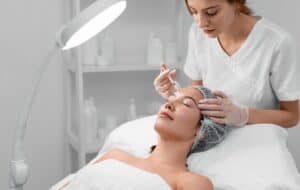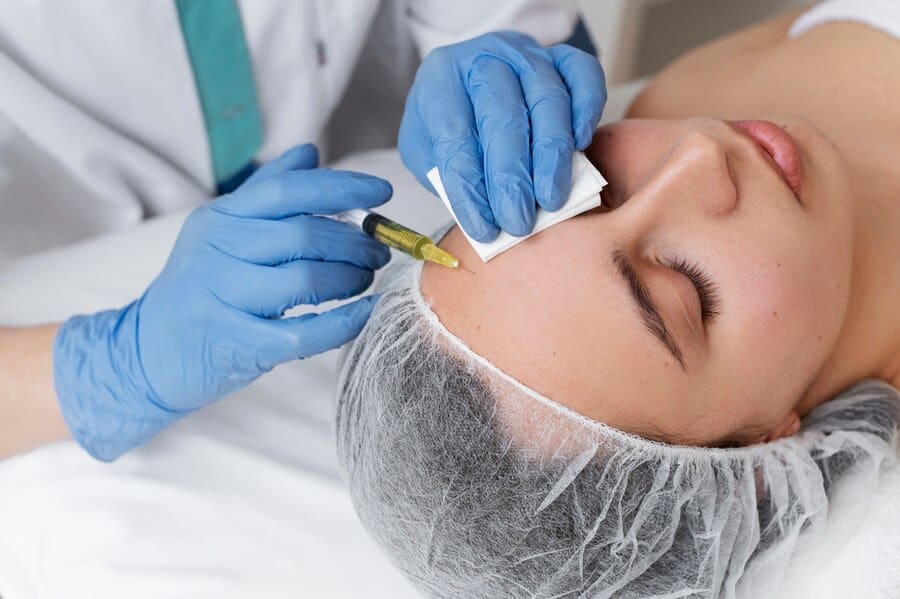In the realm of modern medicine, innovative therapies often emerge, challenging traditional approaches and revolutionizing healthcare. Among these advancements, peptide therapy stands out as a promising avenue, offering a nuanced understanding of cellular communication and potential treatment avenues for a myriad of conditions. In this essential guide to peptide therapy, we delve into the intricacies of this groundbreaking field, unveiling its mechanisms, applications, and potential benefits. Peptides, the building blocks of proteins, play crucial roles in numerous physiological processes, from hormone regulation to immune response modulation. Harnessing their therapeutic potential has opened doors to novel treatments for conditions ranging from metabolic disorders to chronic inflammation and beyond. As research continues to unravel the complexities of peptides and their interactions within the body, the therapeutic landscape expands, offering hope for improved outcomes and enhanced quality of life. Join us as we embark on a journey through the world of peptide therapy, exploring its intricacies, possibilities, and transformative potential in modern medicine.
Beyond Medicine: Exploring the Cosmetic Benefits of Peptide Therapy

Peptide therapy, long recognized for its therapeutic potential in medicine, is now transcending traditional boundaries and making its mark in the realm of cosmetics. Beyond addressing medical conditions, peptides are increasingly being hailed for their remarkable benefits in skincare, haircare, and beauty enhancement. In this exploration, we delve into the exciting frontier of peptide therapy in cosmetics, uncovering its transformative effects and redefining the standards of beauty.
Targeted Treatments for Specific Skin Concerns
One of the most compelling aspects of peptide therapy in cosmetics is its ability to address specific skin concerns with precision. Different peptides target distinct aspects of skin health, allowing for tailored treatments that cater to individual needs. For instance, peptides like Matrixyl® target collagen synthesis to improve skin texture and reduce wrinkle depth, while Argireline® inhibits muscle contractions to diminish the appearance of expression lines.
Enhancing Skin Barrier Function
Maintaining a healthy skin barrier is essential for protecting against environmental aggressors and preventing moisture loss. Peptides such as ceramide peptides and barrier repair peptides bolster the skin’s natural defenses, reinforcing the lipid barrier and improving moisture retention. By fortifying the skin barrier, peptide-infused skincare products help restore balance and resilience, resulting in smoother, more supple skin.
Brightening and Even-Toning Effects
Peptides can also contribute to a brighter, more even-toned complexion by targeting hyperpigmentation and uneven skin tone. Peptides like melanin-inhibiting peptides and tyrosinase inhibitors work to regulate melanin production and reduce the appearance of dark spots and discoloration. Incorporating peptide-based brightening agents into skincare routines can result in a more luminous and radiant complexion over time.
Revitalizing Hair Growth and Scalp Health
Beyond skincare, peptides hold promise for promoting healthy hair growth and scalp health. Peptides such as keratinocyte growth factor peptides and hair follicle-stimulating peptides stimulate hair follicle activity and improve blood circulation to the scalp, promoting thicker, fuller hair growth. Additionally, peptides with anti-inflammatory properties can soothe scalp irritation and reduce hair loss associated with conditions like alopecia.
Antioxidant Protection and Environmental Defense
Environmental factors such as UV radiation, pollution, and oxidative stress contribute to premature aging and skin damage. Peptides with antioxidant properties, such as copper peptides and glutathione peptides, help neutralize free radicals and mitigate oxidative damage. By providing antioxidant protection, peptide-infused skincare products shield the skin from environmental aggressors, preserving its youthful appearance and vitality.
Safety First: Understanding the Risks and Side Effects of Peptide Therapy

Peptide therapy holds immense promise as a cutting-edge approach to healthcare, offering targeted solutions for various medical conditions. However, like any therapeutic intervention, it’s crucial to prioritize safety and awareness of potential risks and side effects. In this comprehensive guide, we delve into the safety considerations surrounding peptide therapy, empowering patients and healthcare professionals alike with knowledge to make informed decisions about its use.
Allergic Reactions and Sensitivities
One of the primary concerns with peptide therapy is the potential for allergic reactions and sensitivities. While peptides are generally well-tolerated by most individuals, some may experience allergic responses to specific peptide sequences or formulation ingredients. Symptoms of allergic reactions may include itching, redness, swelling, and in severe cases, anaphylaxis. It’s essential for healthcare providers to conduct thorough allergy assessments and monitor patients closely for adverse reactions during peptide therapy.
Injection Site Reactions
Many peptide therapies require administration via injection, which can sometimes lead to local reactions at the injection site. These reactions may manifest as pain, swelling, redness, or irritation at the site of injection. While mild and transient, injection site reactions can occasionally be more severe, requiring medical attention. Proper injection technique, site rotation, and patient education can help minimize the risk of injection site reactions associated with peptide therapy.
Hormonal Imbalance
Some peptide therapies, particularly those targeting hormone regulation, carry the risk of inducing hormonal imbalances. For example, peptides that stimulate the release of growth hormone or insulin may disrupt endocrine function if not carefully monitored and regulated. Hormonal imbalances can lead to a range of symptoms, including fatigue, weight gain or loss, mood changes, and metabolic disturbances. Close supervision by healthcare professionals is essential to ensure hormonal equilibrium during peptide therapy.
Long-Term Effects and Unknown Risks
While short-term studies may demonstrate the safety of peptide therapy, the long-term effects and potential risks remain less understood. Peptides interact with complex biological systems, and their prolonged use could pose unforeseen consequences over time. Longitudinal studies and post-market surveillance are necessary to evaluate the safety profile of peptide therapies comprehensively. Patients and healthcare providers should exercise caution and vigilance when considering the long-term implications of peptide therapy.
Interactions with Medications and Supplements
Peptides may interact with other medications or supplements, leading to unintended effects or altered therapeutic outcomes. Drug-peptide interactions can affect absorption, metabolism, and elimination pathways, potentially compromising treatment efficacy or safety. It’s essential for patients to disclose all medications, supplements, and health conditions to their healthcare providers before initiating peptide therapy. Healthcare professionals can then assess potential interactions and adjust treatment plans accordingly to minimize risks.
Aging Gracefully: The Role of Peptide Therapy in Anti-Aging Strategies
Peptide therapy is revolutionizing anti-aging strategies, offering promising solutions for those seeking to age gracefully. By harnessing the power of peptides, individuals can address age-related concerns and maintain youthful vitality. In this article, we’ll explore the key points highlighting the role of peptide therapy in anti-aging.
- Rejuvenating Skin: Peptides stimulate collagen production, leading to improved skin elasticity and firmness. This helps reduce the appearance of wrinkles and fine lines, promoting a more youthful complexion.
- Combatting Age-Related Decline: As we age, our body’s natural peptide production decreases, contributing to various signs of aging. Peptide therapy replenishes these essential molecules, supporting cellular repair and regeneration to counteract age-related decline.
- Enhancing Skin Health: Peptides offer antioxidant properties that protect the skin from environmental damage and oxidative stress. This helps prevent premature aging and promotes overall skin health and resilience.
- Targeted Treatment: Peptide therapy allows for targeted delivery of anti-aging compounds, ensuring optimal results with minimal side effects. This personalized approach tailors treatment to individual needs, maximizing effectiveness.
Peptide therapy represents a groundbreaking approach to anti-aging, offering safe and effective solutions for maintaining youthful vitality.
Conclusion
Peptide therapy is a revolutionary approach to addressing various health concerns. By understanding the benefits and mechanisms of peptide therapy, you can make informed decisions about your health and well-being. At Active Med Integrative Health Center in Poway, CA, our experienced team is dedicated to providing personalized guidance and treatment plans tailored to your unique needs.
If you’re interested in learning more about peptide therapy or would like to schedule a consultation, please don’t hesitate to contact us at +18586734400. Our team is here to help you unlock the potential of peptide therapy and take control of your health.




